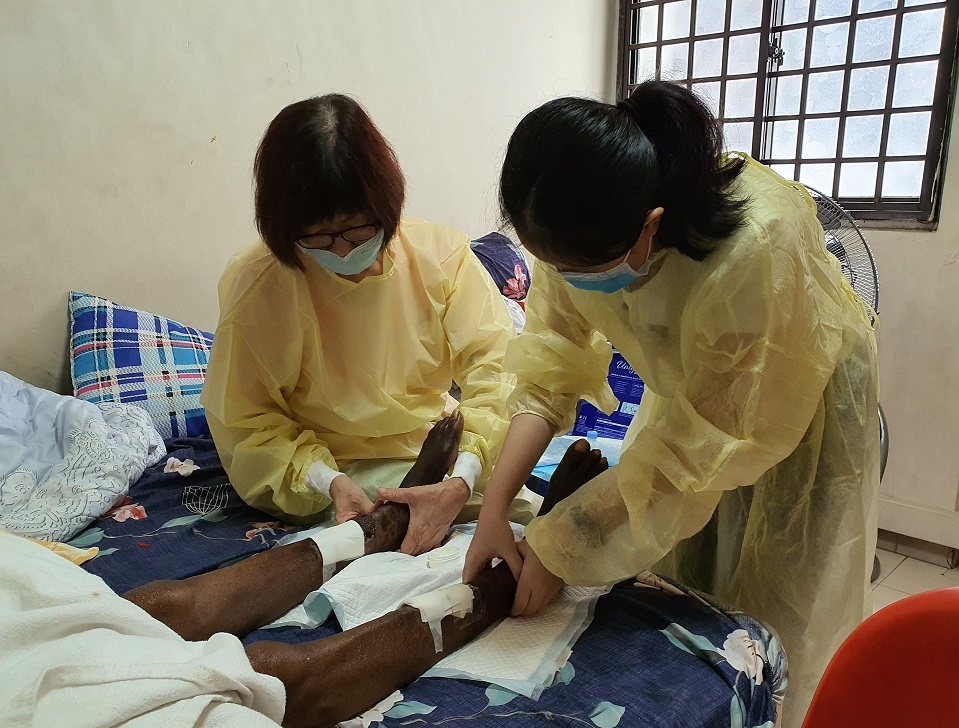
Close


When a patient is seriously ill in the hospital, with a poor prognosis of days to hours, they might have the desire to return home, to spend their remaining time with their loved ones. When this happens, the hospital staff will assess if care needs such as changing of diapers and symptoms, such as breathlessness, can be managed by the patient’s caregiver at home. Sometimes, additional equipment such as oxygen concentrators or hospital beds may need to be arranged. At times, private nursing services may need to be engaged if care needs are too high to be managed independently by the caregiver.
If the hospital assesses that the patient can return home, then the caregiver – often one of the patient’s loved ones – will be prepared for the task at hand. The hospital team will brief the caregiver on the various medications that need to be administered, the signs and symptoms to look out for in a patient at the end of life and what to do when he or she eventually passes away, such as arranging for the certificate of death and funeral. After the briefing, the hospital will then arrange for the ambulance to take the patient back home.
When the patient is home, the HCA team will arrange for a visit to follow up and assess the situation at home. The team will go in to support the patient and family in coping with end-of-life needs, journeying with the family step by step, even till bereavement.
Supporting Caregivers
Mr Jim*, a man in his 60s, was afflicted with terminal cancer. While hospitalised, he decided that when his prognosis became poor, he would like to return home for the last time. Therefore, the hospital team arranged for his son, Tom*, to be briefed on how to manage Mr Jim’s care at home. Initially, Tom felt fearful and unsure if he could manage the task at hand, however, with the reassurance of the hospital, Tom decided to take on the responsibility of carrying out the process of terminal discharge back home.
Upon reaching home, the HCA team encouraged and reassured Tom about the medication administering and various caregiving tasks he had to do. At one point, Mr Jim’s needs increased exponentially as he required round-the-clock care, and Tom activated private nursing services to support him at night. Eventually, Mr Jim passed away a few days after being terminally discharged from the hospital. In subsequent visits, Tom recounted the fear and uncertainty he had experienced on the caregiving journey, but he felt proud that he was able to help his father fulfil his last wish. Tom felt the whole experience was meaningful.
Most times, the whole process from hospital to home can happen very quickly as the patient is deteriorating rapidly, hence preparation at the hospital and prompt follow up by the HCA team are important in creating a seamless transition and care experience for the patient and family. Sometimes, the caregivers may feel overwhelmed or fearful – some report feeling stressed about handling the injections, or feeling scared to see their loved one experiencing end-of-life symptoms (what is depicted on TV is not always representative of reality). Therefore, the HCA team’s involvement serves to provide guidance and reassurance to the caregiver, working together to help make the end-of-life journey a meaningful one.